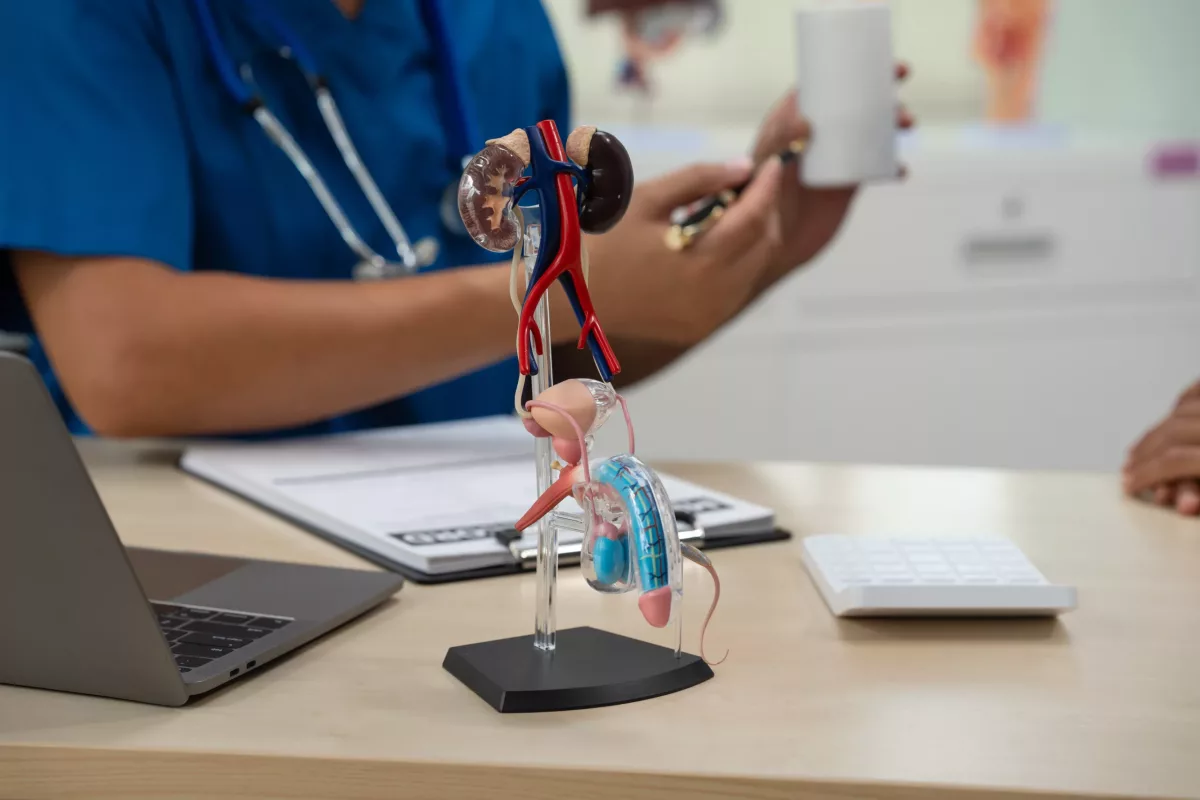A condition in which the veins in the scrotum become swollen is called varicocele. In most cases, people who develop this condition experience mild symptoms, but some of them may have scrotal swelling and pain in the testicle. In some instances, varicocele may not cause symptoms. However, it is one of the common conditions that cause infertility in men.
This is a condition very similar to varicose veins. While varicocele affects the veins in the scrotum (a pouch of skin behind the penis that contains the testicles), varicose veins cause veins to swell in the legs. However, this is not a life-threatening condition, but it can be serious because it may cause infertility.
This condition is considered common in the U.S. because it affects approximately 20% of all men.
Can Varicocele Affect Fertility?
Yes, it causes roughly 40% of all cases of male infertility. However, there are a lot of people with this condition who have no problems with fertility. Generally, healthcare professionals do not fully understand how this condition contributes to infertility.
Do not hesitate to visit a doctor if you suspect you have infertility.
Symptoms
While most people with this disorder do not experience symptoms, when they do occur, they may include the following ones. For example:
- Dull testicular pain, which improves when you lie down
- Testicular atrophy (shrinking of the testicles)
- A small lump above the affected testicle
- Swelling in the scrotum or testicle
If you develop large varicoceles, they may feel like a bag of worms or spaghetti. However, in mild cases, it is quite difficult to see or feel.
Causes
Healthcare providers do not fully understand why this condition happens. However, they think a faulty valve inside a vein in the spermatic cord could play a role. A band of tissue that holds the testicles in place is called the spermatic cord. The veins from the scrotum return the blood to the body, and they have certain valves (such as two flap-like structures) that help the blood return to the heart muscle. Experts think that if even one valve does not work properly, it may lead to the buildup of the veins in the testicles because blood does not flow as it should. Over time, it leads to swelling.
Risk Factors
There are some factors that may elevate your risk of developing varicocele. These include:
- Certain gene changes (mutations) – Sometimes, this condition can be present at birth (congenital).
- Puberty – Some physicians believe that an increase in blood flow to the genital area may also increase the risk of varicocele. It often happens during puberty.
- Hormonal changes
What Are The Potential Complications of Varicocele?
If you have varicocele, you may also experience some complications, especially if you do not get treatment. Check below some examples:
- Erectile dysfunction (ED) – Some studies have shown that there may be a link between varicocele and ED. However, more research is needed.
- Low Testosterone (male hypogonadism) – Generally, Testosterone is produced in the testicles. This is an important hormone that is involved in the development of male characteristics. People who have reduced Testosterone levels may experience low sex drive, reduced muscle mass, and even depression.
- Azoospermia – This is a health condition in which you do not have sperm in your ejaculate (semen). These cells are reproductive cells that fertilize the egg, which then creates an embryo. This is another cause of male infertility.
Unfortunately, there is no way to prevent this health condition because healthcare providers do not fully understand why it occurs.
Diagnosis
First, physicians will perform a physical examination and may ask some questions about the symptoms and medical history. However, to confirm the condition, doctors may perform some tests. Check below some examples:
- Pelvic ultrasound – This is an imaging test that helps get images of the veins in the testicles. Usually, this is the most common test used to confirm varicoceles.
- Semen analysis – During this test, you will masturbate in a container and then send the sample to the laboratory. Physicians usually look for the presence of general health of sperm. It often helps confirm whether varicocele causes infertility.
- Blood tests – Commonly, physicians perform these tests to check hormone levels (including Testosterone and follicle-stimulating hormone or FSH).
Once you are diagnosed with this condition, physicians may perform additional tests to determine the severity grade of this condition. Check below grades of varicocele:
- 0 – This grade means the patient has the smallest type of this condition.
- 1 and 2 – In such cases, varicocele still cannot be seen but can be felt during the Valsalva maneuver.
- 3 – The last type of varicocele is the largest one, and it can be seen easily with the naked eye.
Treatment
While not everyone who develops this condition needs treatment, some people may develop a severe form of the disease, which may lead to infertility. In mild cases, physicians may recommend some home remedies. These include:
- No treatment – Sometimes, when the condition does not cause problems, symptoms, or infertility, it does not need treatment.
- Daily routine changes – Usually, people with varicocele need to avoid some activities that cause discomfort.
- Apply ice to the affected area – Physicians also recommend applying ice packs to the scrotum to lessen pain. You should not apply the ice directly to the skin.
- Over-the-counter (OTC) medicines – Your doctor may recommend nonsteroidal anti-inflammatory drugs (NSAIDs) such as Naproxen sodium or Ibuprofen to reduce inflammation. However, these medications are not for everyone. Consult with your doctor before taking any of them.
Surgery
In severe cases, doctors may recommend surgery that may help treat infertility and severe pain. This procedure is known as varicocelectomy, and it involves cutting the affected veins and sealing off the ends.
In most cases, people recover completely within 6 weeks after treatment.
Frequently Asked Questions
What is the difference between a hydrocele and a varicocele?
While varicoceles are enlarged veins in the scrotum, a hydrocele is a fluid-filled sac around a testicle. Usually, hydroceles happen in infants when a thin membrane tunnel does not close properly after the testicles descend during fetal development.
What happens if a varicocele is left untreated?
Usually, you may not get treatment if this condition does not cause concerns or infertility. In severe cases, if a varicocele is left untreated, it may lead to permanent damage to the testes and other complications.
Can a varicocele go away?
No, once you are diagnosed with this condition, it cannot go away on its own without treatment. Ask your healthcare provider if you have additional questions.




